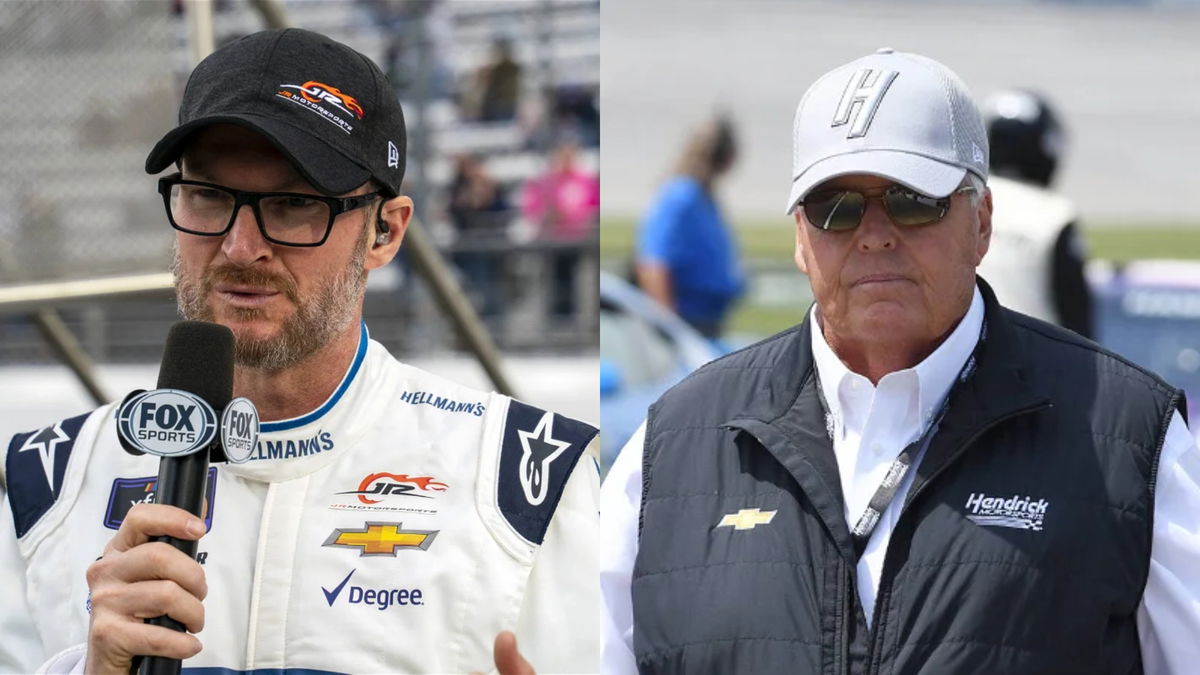
Imago
Image Credits: Imago

Imago
Image Credits: Imago
Drama has not left the chat throughout the 2024 season. Ranging from Stewart-Haas Racing shuttering to Michael Jordan and Denny Hamlin filing a NASCAR lawsuit – the popcorn box never left our hands, right? However, the closing chapter of the season threw up some tantalizing events that left a mark on the series’ history. Due to the relentless elimination format, drivers resorted to race manipulation in Martinsville. However, Dale Earnhardt Jr does not blame them too much.
Watch What’s Trending Now!
William Byron and Christopher Bell were in a desperate fight to grab that last Championship 4 spot. Their luck turned awry during the final laps when their OEM teammates came to help. While Bubba Wallace slowed to allow Christopher Bell to take a wall ride, Austin Dillon and Ross Chastain acted incapable of passing a slow William Byron. But choosing to pass Byron would have meant worse consequences, as Dale Jr said.
ADVERTISEMENT
The grass is not so greener on the other side
Rick Hendrick’s championship berth faded rapidly after William Byron damaged a toe link and fell to 6th place in Martinsville. Dillon and Chastain formed a ‘rolling roadblock’ behind him, preventing Brad Keselowski from passing. Their teams landed $200,000 penalties each, point-redux, and crew suspensions. Yet NASCAR did not penalize the drivers because they “were told essentially what to do,” as NASCAR executive vice president Steve O’Donnell emphasized. Both Chevrolet drivers spoke over the radio about whether they “knew the deal.” This slice of the story reveals the true flavor of the scenario – the drivers did not have much of a choice.
That is what Dale Earnhardt Jr emphasized in a Dale Jr Download episode. “The drivers were really doing what they were told…If either one of the Chevrolet drivers passed Byron, I would hate to think what inadvertent punishment would come down on those guys. While I don’t love what they did, they really didn’t have a choice.” That punishment would not come from Rick Hendrick, as he is eventually the owner of another race team. “If you’re driving for another organization, what’s Rick Hendrick gonna do? He’d be really p—-d off, he’ll probably tell you, ‘you’re dumb for making that decision.'”

USA Today via Reuters
Mar 27, 2022; Austin, Texas, USA; NASCAR Cup Series driver William Byron (24) during the EchoPark Automotive Texas Grand Prix at Circuit of the Americas. Mandatory Credit: Mike Dinovo-USA TODAY Sports
Yet both Dillon and Chastain were not safe from possible repercussions from their OEM. Dale Earnhardt Jr continued: “But if you kick out a Chevy car and you’re driving a Chevy, they’re going to be upset with you, your organization, and your team…Even if the manufacturers did not give them direct orders, there’s this perception that they need to do a certain thing on the racetrack.” Steve O’Donnell recently shared that a stern warning was given to OEMs and future actions were considered. Although no rule exists to penalize manufacturers now, O’Donnell reassured that such a rule will appear next season “one thousand percent.”
ADVERTISEMENT
Dale Jr emphasized this situation is nothing new on the NASCAR block.
ADVERTISEMENT
Top Stories
Ross Chastain Labels NASCAR Driver “The Most Punchable Face” to Excuse Himself Over Punchgate Controversy
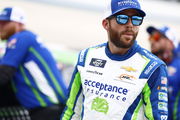
Commissioner Steve Phelps Quits NASCAR Days After Getting Exposed in Lawsuit Trial
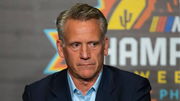
Who Is Steve Phelps? NASCAR Commissioner’s Net Worth, Wife & NASCAR Contract
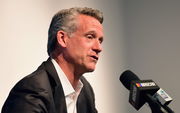
Jimmie Johnson Poaches Richard Childress’ Key Ally Ahead of NASCAR 2026 Season
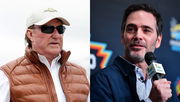
3x NASCAR Champion Tony Stewart Returns To His Roots Weeks After Losing NHRA Seat
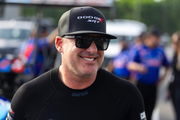
Dale Earnhardt Jr wants to curb lawlessness
Well, the Chevy twins and Toyota’s Bubba Wallace were hardly the first ones. The first time NASCAR got a race manipulation case on its hands was in 2013 at Richmond Raceway. Ryan Newman looked poised for the victory, and Martin Truex Jr for runner-up, which would have pushed him off the playoff grid. But the latter’s Michael Waltrip Racing teammate was on a mission.
Clint Bowyer intentionally spun to trigger a caution period and helped out Truex. Yet after that, NASCAR slapped a $300,000 penalty and a major point redux. MWR lost its sponsors and shut down in a year. Similarly, Cole Custer also intentionally slowed down for a teammate in Charlotte in 2022. Stewart-Haas Racing incurred a $200,000 fine and suspensions.
ADVERTISEMENT
Given these flagrant instances of race manipulation, Dale Earnhardt Jr demanded some solid action against the OEMs. “It is not the first time that’s been happening in Martinsville…It’s happened in the previous years, different occurrences. I can understand one teammate protecting another. But when it becomes series-wide like all of one manufacturer posturing for each other…we gotta figure out where to fix this problem. It’s not the drivers…the overall problem is the pressure from the top which is the manufacturer.”
NASCAR has promised to both change the penalty scenario and the playoff format. Let us wait and see how far these promises materialize.
ADVERTISEMENT
ADVERTISEMENT
ADVERTISEMENT

